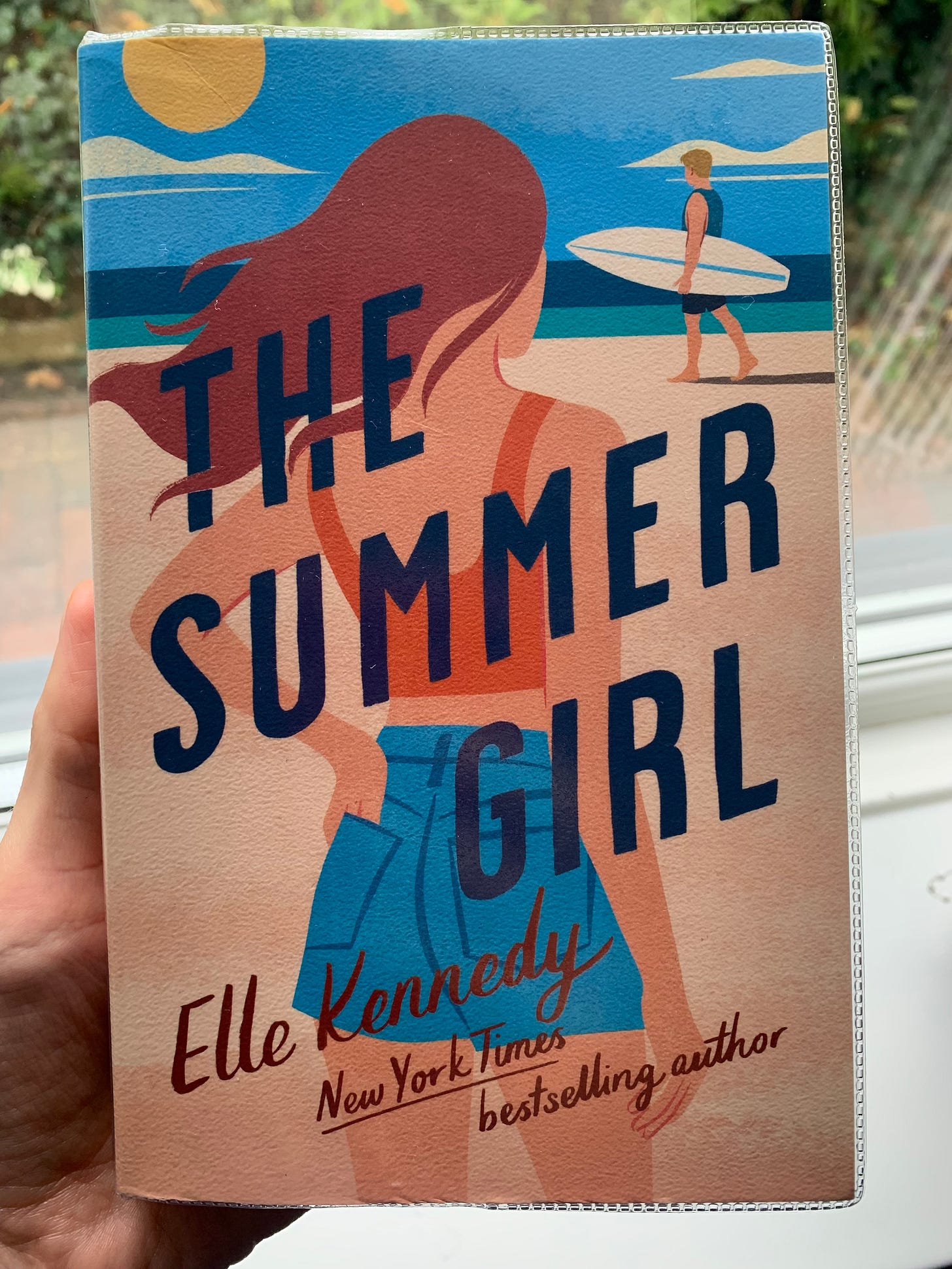Learning about character arcs from Elle Kennedy's The Summer Girl.
Do you notice these things?
I finished reading Elle Kennedy’s The Summer Girl yesterday and I enjoyed it. I liked that the main couple- Cassie and Tate- were playful with each other, which created a sense of real ease and connection between them. The reading experience was light and fun.
What I struggled with- and I recognise that my romance novel preferences are coming into play here- were the gender stereotypes that Cassie and Tate’s characters upheld. I also found that Tate’s transformation across the novel- from an immature ‘player’ or ‘man whore’ (terms used in the book) to a deeply feeling man who realises that friendship with a woman is part of romantic love- didn’t land for me.
I’ve thought hard about why Tate’s character arc bothered me and I think it’s because he doesn’t have any of the epiphanies that we expect of our protagonists. Without him showing self-awareness, it makes it unclear whether the changes he experiences in his relationship with Cassie are real. And whether his problematic interiority at the beginning is a set-up for his transformation.
For example, around 25% in, Tate thinks this: “In my experience, plenty of women say they’re down for no-strings sex. And maybe they mean it in the moment. Maybe they think they’ll be okay keeping it strictly physical. But more often than not, the strings form before you can blink, and suddenly you’re accused of being a selfish prick.” OOOF. There’s a lot of misogyny and infantilisation of women in there. But there’s also a terrible, reductive stereotype of men- that not only are they inherently promiscuous but that they don’t want or need emotional intimacy.
Pretty awful, but… if this was part of the character’s transformation then it could be understandable.Yet, Tate doesn’t seem to have a ‘dark night of the soul’, which would justify his earlier misogynistic interiority and consolidate the idea that he has an arc of change.
And his behaviour with Cassie and other female characters doesn’t match his interiority or the depiction of him by the other characters. Around 65% in, Tate diffuses an awkward situation with Cassie as their relationship is developing and says this: “I don’t juggle women. I might sleep with a lot of them, but never at the same time. Ask anyone who knows me- I don’t play games. […] I’m a Boy Scout. […] My parents raised me to treat women with respect.” And he’s not wrong. He never treats Cassie badly and he behaves with respect towards all of the women in the novel, including his female friends, of which he has several. None of which fits with his self-perception as a promiscuous avoider of emotions or as his description as a player by his friends.
These are small things, inconsistencies in Tate’s character but they niggled at me and took me out of the story sometimes. They won’t stop me reading more from Elle Kennedy, but they did teach me what to look for when I’m outlining a character’s arc of change or when I’m reading a client’s draft manuscript.
Do you notice these inconsistencies in character when you’re reading? Is romance more prone to these difficulties because playing with stereotypes is part of the thrill?
We like when characters start as stereotypes and then reveal complexity, that’s the whole premise of enemies to lovers, for example (maybe my favourite romance trope). Does this make it more difficult for writers to create believable character arcs? I’d love to hear what you think.
Thanks for reading!
X Emma


